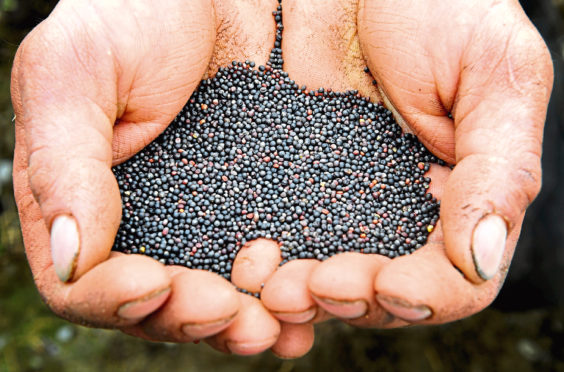Farmers are being asked to collect samples of adult cabbage stem flea beetles from oilseed rapes crops at harvest.
Scientists at Rothamsted Research, based in Hertfordshire, are on the hunt for samples so they can assess levels of both pesticide resistance and parasitization by natural enemies in the beetles.
In return for sending in a sample, the institute will give farmers data for their own area and a measure of how it compares nationally.
Patricia Ortega-Ramos, who is conducting the research, said the call for insects was part of a project to determine if a wasp recently discovered to parasitize the beetles might be an effective bio-control agent.
She said cabbage stem flea beetle numbers had been increasing since the 2013 ban on neonicotinoid seed treatments in oilseed rape, resulting in serious yield losses in some parts of the country.
Farmers are also beginning to see resistance to the only control option currently available – pyrethroid sprays. “But there is new hope for control,” said Ms Ortega-Ramos.
“Recently, a natural parasitoid of the adult stage of flea beetles have been found and studies on its life cycle have revealed that the larvae of this wasp develop inside the adult beetle and kill them when they emerge.
“However, the biocontrol potential and distribution of these parasitoids are still unknown. Through this study we aim to understand the mechanisms of pyrethroid resistance developing in UK population and the importance of parasitoids in biological control.”
She said the best way to collect beetles was from the grain at harvest, either from trailers or stores.
Farmers are being asked to send at least 250 beetles to assess both pyrethroid resistance and parasitaztion rate, though in areas where beetle populations are known to be low, samples of 50 can be sent in for pyrethroid testing only. To get involved contact patricia.ortega-ramos@rothamsted.ac.uk
